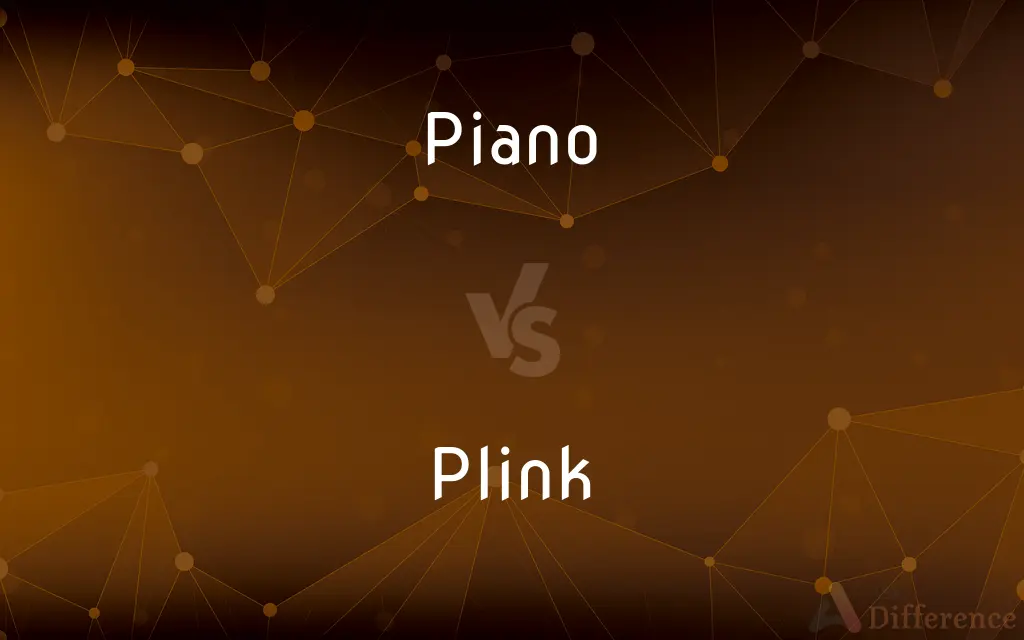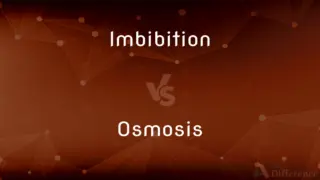Piano vs. Plink — What's the Difference?

Difference Between Piano and Plink
ADVERTISEMENT
Compare with Definitions
Piano
The piano is an acoustic, stringed musical instrument invented in Italy by Bartolomeo Cristofori around the year 1700 (the exact year is uncertain), in which the strings are struck by wooden hammers that are coated with a softer material (modern hammers are covered with dense wool felt; some early pianos used leather). It is played using a keyboard, which is a row of keys (small levers) that the performer presses down or strikes with the fingers and thumbs of both hands to cause the hammers to strike the strings.
Plink
Emit a short, sharp, metallic or ringing sound
The sounds echoed and plinked like bells
Piano
A large keyboard musical instrument with a wooden case enclosing a soundboard and metal strings, which are struck by hammers when the keys are depressed. The strings' vibration is stopped by dampers when the keys are released and can be regulated for length and volume by two or three pedals.
Plink
A short, sharp, metallic or ringing sound
There was a plink, the sound of an aluminium bat hitting the ball
Piano
A passage performed or marked to be performed softly.
ADVERTISEMENT
Plink
To cause to make a soft, sharp, metallic sound; clink.
Piano
(especially as a direction) soft or softly.
Plink
To shoot at casually.
Piano
(especially as a direction) soft or softly.
Plink
To make a soft, sharp, metallic sound.
Piano
A musical instrument with a manual keyboard actuating hammers that strike wire strings, producing sounds that may be softened or sustained by means of pedals.
Plink
To shoot casually at random targets.
Piano
A passage to be played softly or quietly.
Plink
A short, high-pitched metallic or percussive sound.
Piano
In a soft or quiet tone. Used chiefly as a direction.
Plink
To make a plink sound.
Piano
(musical instruments) a percussive keyboard musical instrument, usually ranging over seven octaves, with white and black colored keys, played by pressing these keys, causing hammers to strike strings
The piano in his house takes up a lot of space.
She has been taking lessons for many years and now plays piano very well.
Plink
(with "out") (colloquial) To play a song or a portion of a song, usually on a percussion instrument such as a piano.
Piano
To play the piano.
Plink
(firearms) To take part in the sport of plinking.
Piano
(of or with fingers) To move (the fingers) up and down on, similar to the motions of a pianist playing the piano.
Piano
To equip with a piano.
Piano
To become softer and less intense.
Piano
(music) softly, as a musical direction (abbreviated to p. in sheet music)
Piano
(music) Soft, quiet.
Piano
(in extended use) Gentle, soft, subdued.
Piano
Soft; - a direction to the performer to execute a certain passage softly, and with diminished volume of tone. (Abbrev. p.
Piano
A well-known musical instrument somewhat resembling the harpsichord, and consisting of a series of wires of graduated length, thickness, and tension, struck by hammers moved by keys.
Piano
A stringed instrument that is played by depressing keys that cause hammers to strike tuned strings and produce sounds
Piano
(music) low loudness
Piano
Used chiefly as a direction or description in music;
The piano passages in the composition
Piano
Used as a direction in music; to be played relatively softly
Share Your Discovery

Previous Comparison
Lone vs. Alone
Next Comparison
Imbibition vs. Osmosis













































